In South Africa, a boy is most often referred to as “ou” or “oke”, while other slang terms such as “boykie” are often used in a more specific sense. You may also hear kerel meaning “boyfriend”. Beyond that, generic terms such as “guy,” “bro”, “dude” are very often used in large parts of South Africa.
South Africa is a nation that’s home to many languages, meaning that slang is often disjointed and only used in certain parts of the country.
There are certainly prevailing slang terms that are understood if not used by most people, but there are also many slang terms that seem obscure because they arose out of an ethnic minority.
Let’s find out more.
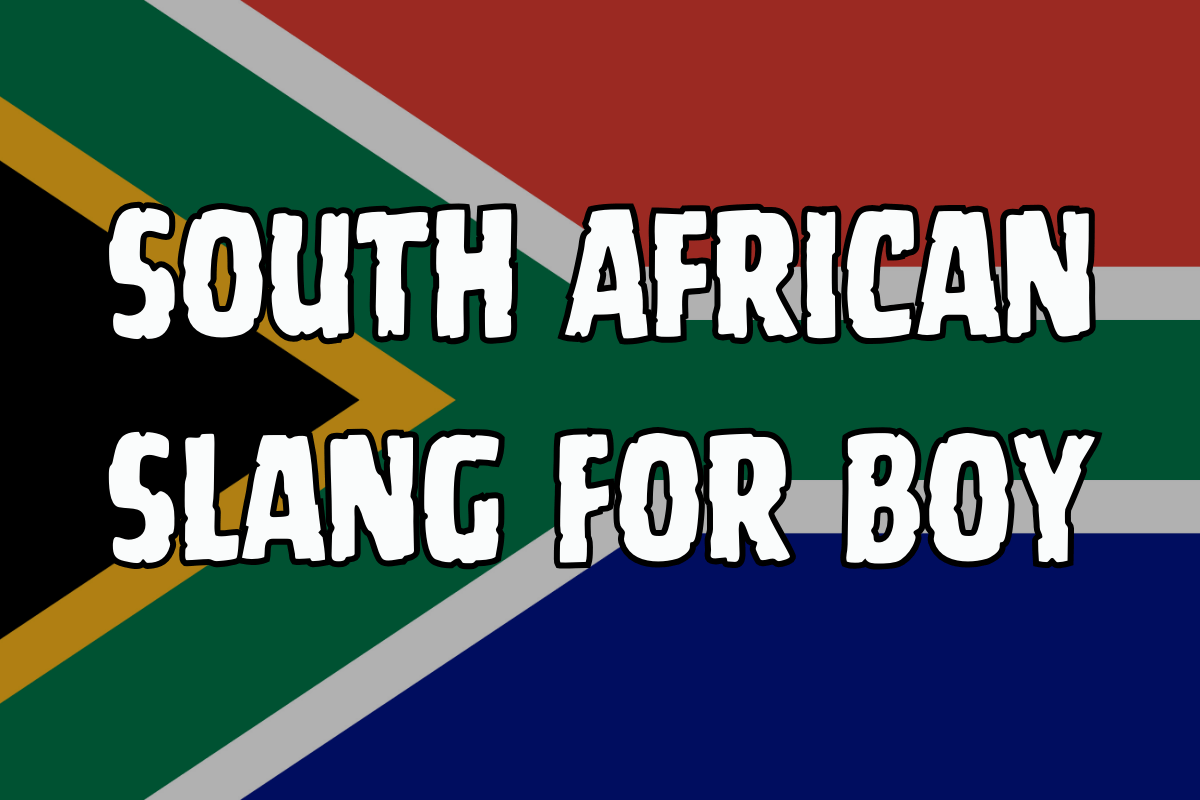
South African Slang For Boy
Boy
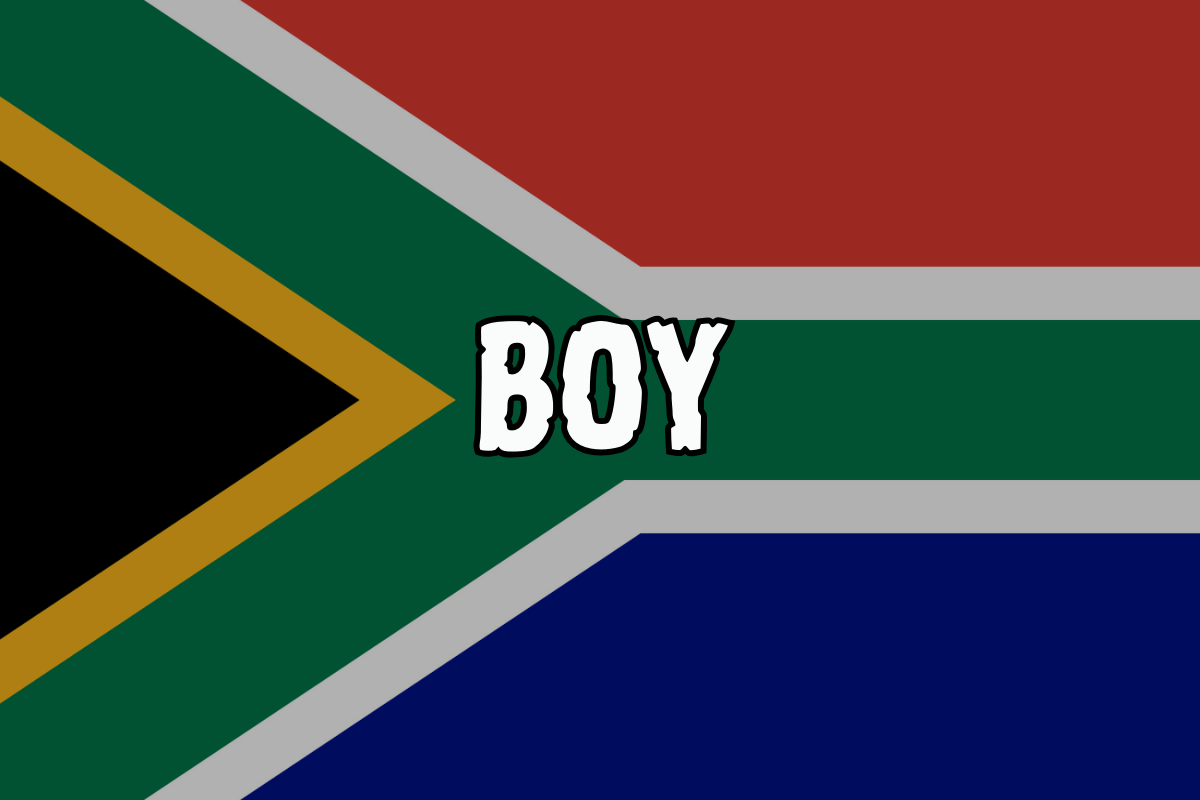
“Boy” is a generic term that’s widely used in South Africa to denote a young man or male.
While it is simply standard English, it is also frequently used in casual, informal settings across the country.
In some contexts, however, the term can carry derogatory connotations, particularly when used in a racialized or infantilizing manner.
When used neutrally, it just refers to a young man or a boy, making it a familiar and versatile part of South African slang.
Despite its generic nature, “boy” remains an essential term in the South African vocabulary for referring to males in everyday conversation.
Examples in sentences:
- “That boy is always full of energy.”
- “I remember when that boy was just a kid.”
- “The boy next door helped me fix my bike.”
- “They say that boy has a bright future ahead.”
- “He’s a good boy and always respectful.”
Boykie
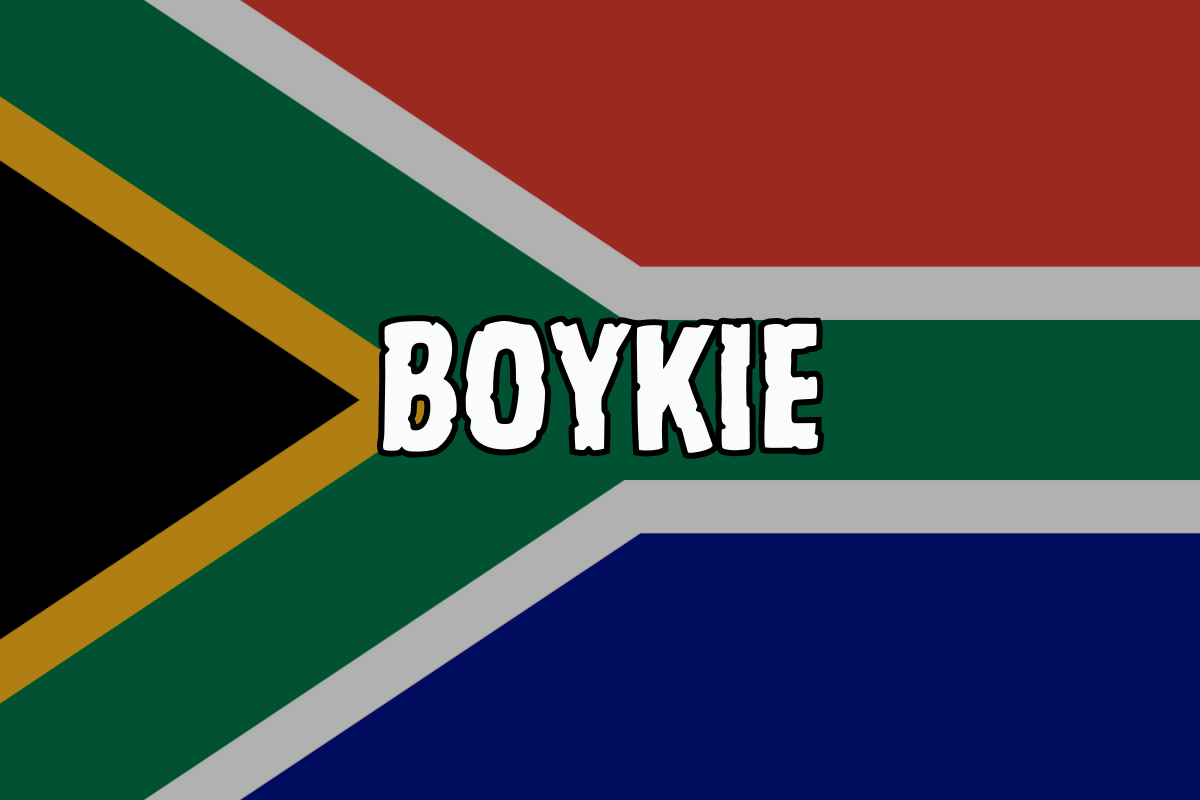
“Boykie” (sometimes spelled “boytjie”) is a term used among younger people in South Africa to describe a young man with a cool vibe. It implies that the individual is not only attractive but also has an effortless, confident style that stands out, particularly in social or school settings.
This term is often used in informal conversations to compliment someone’s youthful charm and energy. It’s a lighthearted way of acknowledging that someone is seen as particularly trendy or appealing among their peers.
Examples in sentences:
- “He’s becoming a bit of a boykie these days with his new style.”
- “Everyone calls him a boytjie because he’s so cool and laid-back.”
- “That boykie scored the winning goal in the match.”
- “You can tell he’s a real boykie by the way he carries himself.”
- “The new student is quite the boykie, making friends everywhere.”
Bro
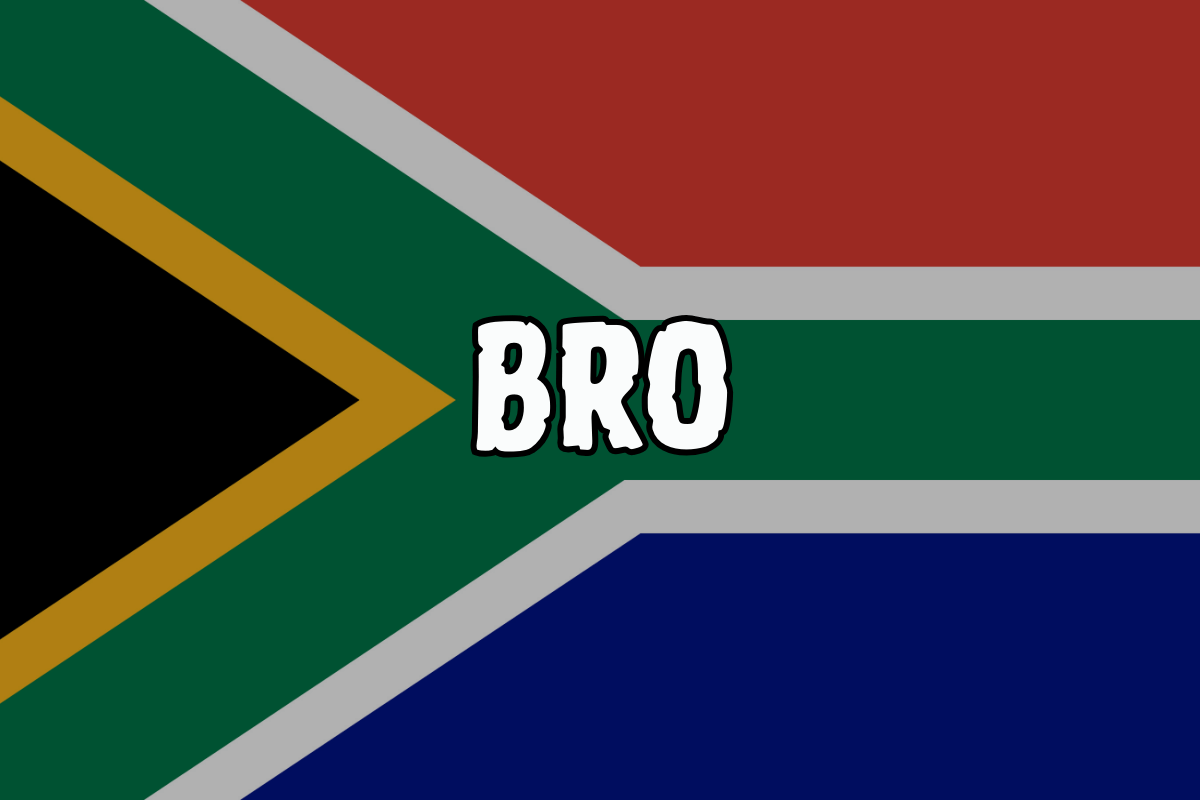
“Bro” is a staple of South African slang, used to refer to a friend or mate.
Derived from “brother,” it conveys a sense of camaraderie and familiarity.
The term is widely used across different age groups and communities, often interchangeably with terms like “bra” or “bru.”
It’s a versatile and informal way to address someone you’re close to, reflecting the relaxed communication style in South Africa.
Despite its generic origins, “bro” has become an integral part of everyday conversation, symbolizing both friendship and solidarity in a laid-back manner.
Examples in sentences:
- “Hey bro, how’s it going?”
- “Thanks for your help, bro.”
- “I’m hanging out with my bros this weekend.”
- “That’s my bro – we’ve been friends forever.”
- “Bro, you won’t believe what just happened!”
Dude
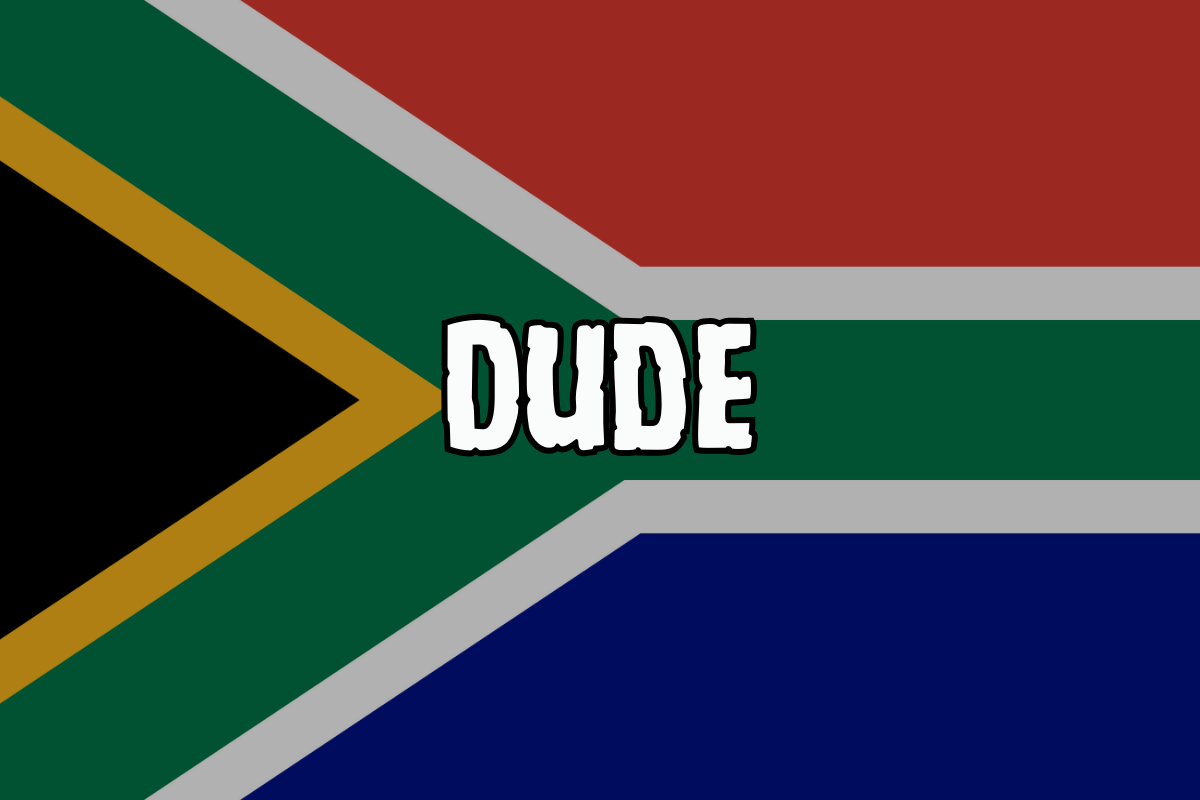
“Dude” is an informal term widely used in South Africa to refer to a man or a friend.
Although its origins are American, it has been readily adopted into South African slang and is commonly used by younger generations.
The word conveys a laid-back and friendly tone, making it a popular choice in casual conversation.
Whether addressing a close friend or simply referring to a guy in a relaxed manner, “dude” fits well within the everyday vernacular of South Africa.
Examples in sentences:
- “Hey dude, what’s up?”
- “That dude over there is our new teammate.”
- “I can’t believe that dude just pulled off that trick.”
- “Dude, you’ve got to check out this new place.”
- “Thanks, dude, I really appreciate your help.”
Guy
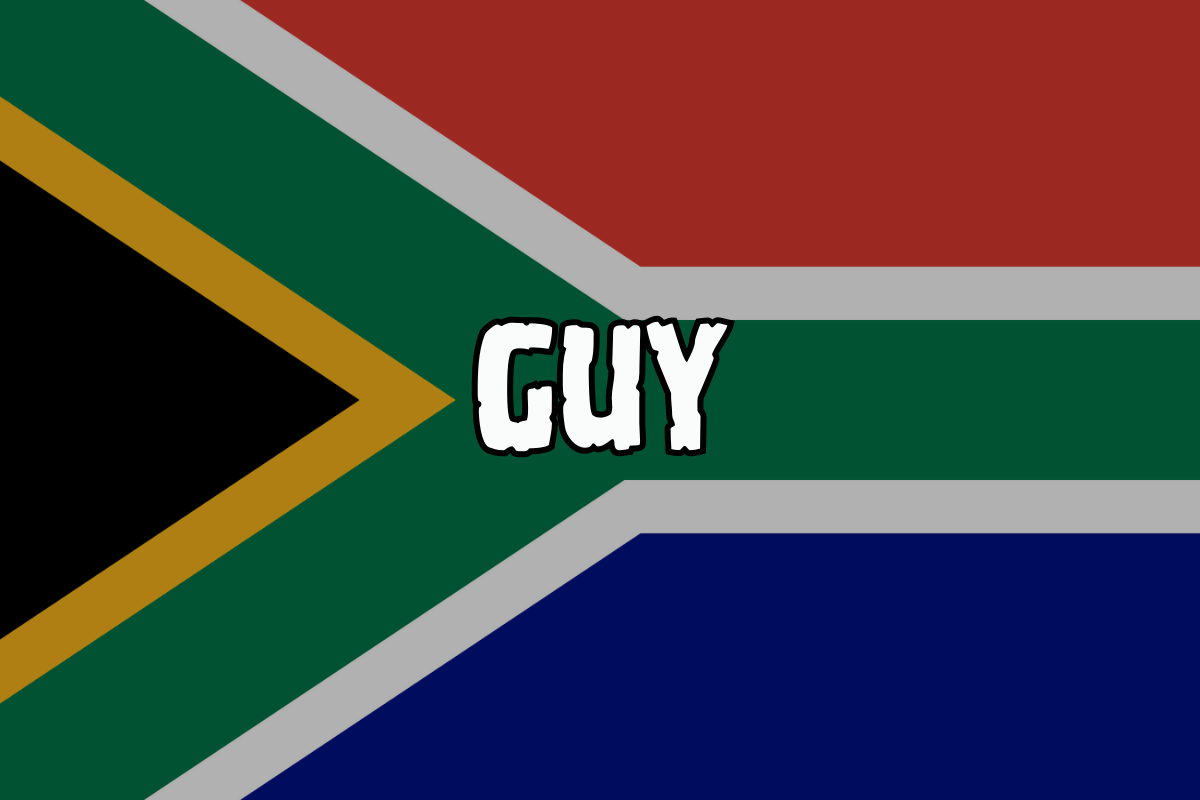
“Guy” is a versatile, everyday term used across South Africa to refer to a man.
Although it isn’t uniquely South African, it is widely recognized and used in informal conversation to describe a fellow or a person in general.
It serves as a neutral, straightforward way to address or refer to someone without the extra cultural nuance found in other slang terms.
This term is often used interchangeably with words like “dude” or “bro,” and its simplicity makes it a staple in casual speech across different regions and age groups in South Africa.
Examples in sentences:
- “That guy is really talented on the soccer field.”
- “I met a friendly guy at the party last night.”
- “You can always count on that guy for a laugh.”
- “Hey guy, can you help me out with this?”
- “He’s one cool guy, always chill and relaxed.”
Kerel
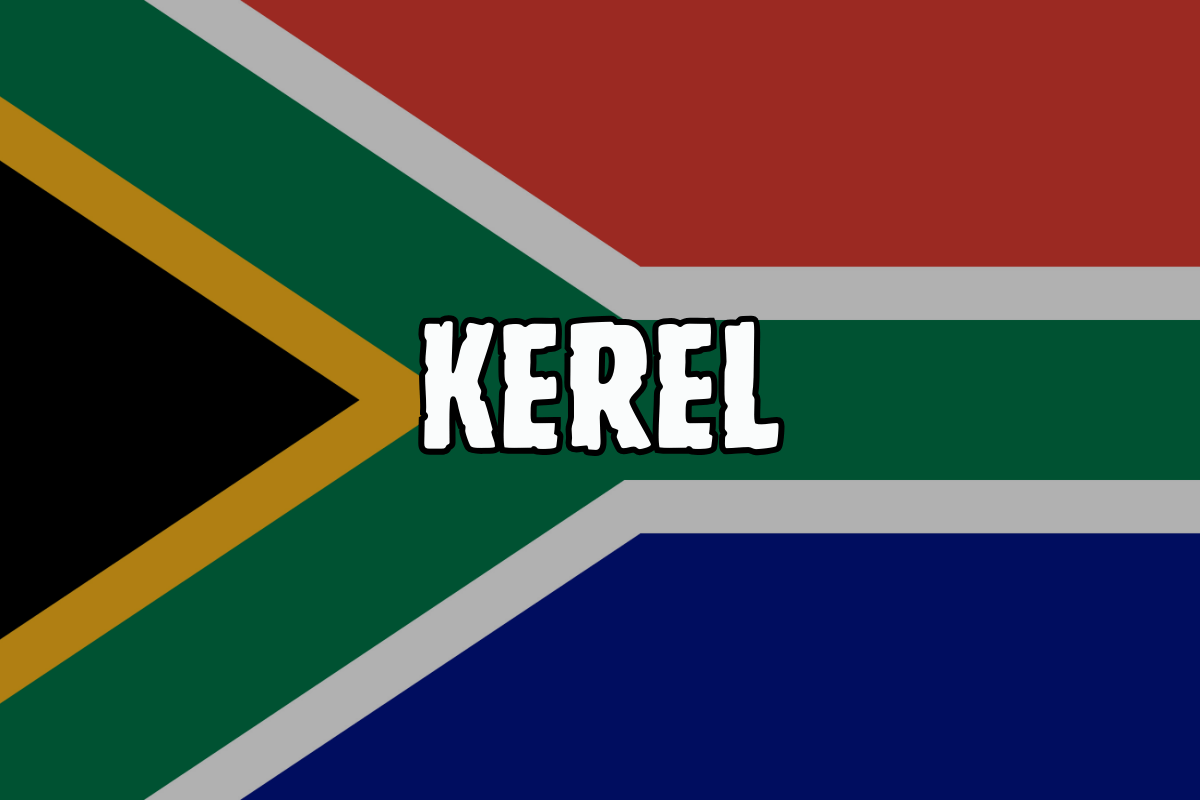
“Kerel” is an Afrikaans slang term that has been widely adopted into South African English to refer to a guy or young man.
While it can sometimes be used to describe a group of men or even a boyfriend, its primary usage is as a casual term for a male friend or acquaintance.
The term carries a friendly and familiar tone, and it reflects the unique linguistic blend found in South Africa, where Afrikaans and English intermingle.
Whether you’re greeting a friend or talking about a guy in general, “kerel” is a versatile term that captures the relaxed, informal vibe of South African conversation.
Examples in sentences:
- “That kerel always has the best stories.”
- “I met a great kerel at the party last night.”
- “He’s a real kerel – dependable and easy-going.”
- “Come on, kerel, let’s head out for a drink.”
- “That kerel can fix anything, no matter what the problem is.”
Laddie
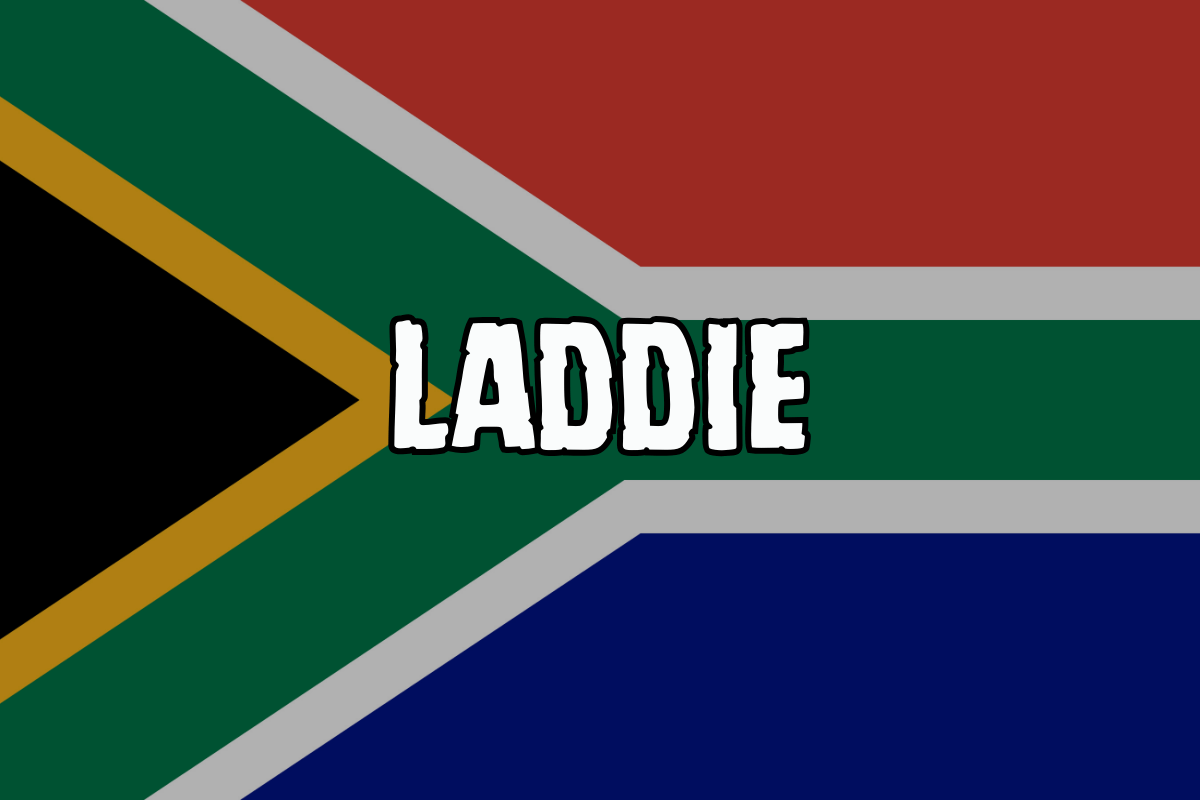
“Laddie” is an informal term used in South Africa to refer to a young boy or man, similar to the English word “lad.”
It’s often used affectionately or to refer to someone who is youthful, energetic, or immature in a playful way.
While it can be used casually among friends or in a light-hearted context, it is generally considered more endearing than derogatory.
The term is more common in certain regions and is typically used in informal settings.
It can also be used in an ironic or teasing manner to refer to someone who is acting a bit younger than their age.
Examples in sentences:
- “Look at that laddie go—he’s so full of energy!”
- “Stop acting like such a laddie; you’re grown up now!”
- “He’s just a laddie, but he’s already making waves in the game.”
- “Come on, laddie, we’ve got work to do.”
- “That laddie can really play rugby, huh?”
Ou/Oke

“Ou” and its variant “oke” are widely used across South Africa to refer to a man or young man, similar to how one might say “bro” or “mate” in English.
“Ou” is the more modern term, but “oke” (originally a clipped form of “okie”) was used first and is still heard, especially among older generations.
The term is often used in a casual, friendly way when addressing friends or acquaintances.
The terms “ou” and “oke” are most commonly used in informal settings, and while they can refer to men of any age, they are particularly popular among younger South Africans, especially in everyday conversations.
Examples in sentences:
- “Hey, ou, what’s happening this weekend?”
- “Oke, I need your help with this project.”
- “I bumped into that oke from school yesterday.”
- “Come on, ou, let’s hit the road.”
- “Oke, you’re looking sharp today!”
Son

“Son” is a term commonly used in South Africa, not just as a literal reference to one’s child, but also as an affectionate or playful way to refer to a young man.
It is often used informally among friends or acquaintances, particularly when a person is seen as young or inexperienced.
The term is widely used in both urban and rural areas and is sometimes employed to convey a sense of familiarity or a mentor-mentee dynamic.
It can be used with a positive or teasing tone, depending on the context.
Examples in sentences:
- “Come on, son, you’ve got this!”
- “What’s going on, son? Long time no see!”
- “You’re doing great, son. Keep it up!”
- “Don’t worry about that, son, you’ll get the hang of it.”
- “That’s my boy, you’re the real deal, son!”
Spruit

“Spruit” is a term commonly used in South Africa to describe a small, flowing body of water, typically a stream or creek.
It is frequently used to refer to natural water sources found in rural areas or on farms, and the term is often used in everyday conversation when describing small waterways.
While “spruit” can refer to a literal stream, in slang, it can also be used figuratively to describe something that is small or lesser in size or importance.
It’s widely recognized and used in both urban and rural areas across South Africa.
Examples in sentences:
- “We had a great time by the spruit, just relaxing in nature.”
- “There’s a little spruit running behind the house, perfect for a quick dip.”
- “I love taking walks near the spruit; it’s so peaceful.”
- “The kids spent the afternoon playing by the spruit.”
- “The spruit dried up during the summer, but it’ll flow again when the rains come.”

